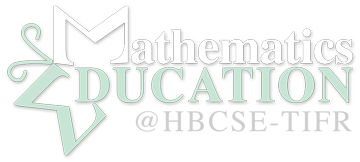Home › Forums › Middle School Mathematics Education › How Most People Approach Vietnamese Tax Codes
- This topic is empty.
-
AuthorPosts
-
-
christopercox32
GuestThe tax regulations in Vietnam serve a major function in the countrys fiscal policies. These guidelines govern how taxes are collected from residents and organizations. Understanding Vietnam tax codes is important for anyone conducting business in the country.
The structure of tax in Vietnam includes a variety of fiscal categories, each imposed based on income type. The most widely used taxes include CIT, PIT, value-added tax, luxury goods tax, and import-export duties.
Corporate income tax is charged to all companies operating within Vietnam. The base level is 20%, although qualified industries may benefit from lower taxation. These special schemes are usually applied to firms involved in healthcare, or those registered in priority regions.
Individual income tax in Vietnam uses a progressive system with brackets ranging from five to thirty-five percent, depending on the salary. Domestic taxpayers are taxed on their total worldwide earnings, while non-residents only pay tax on Vietnamese-sourced income. Deductions and dependent exemptions are available to ease the burden.
Sales tax is another core component of Vietnams tax code. It is usually set at a flat level of ten percent, although some items are zero-rated. For example, healthcare supplies may qualify for a reduced rate. VAT is applied at each stage of production, with businesses required to file VAT returns monthly.
Selective consumption tax is imposed on socially restricted items, such as alcohol. This tax is intended to discourage use of harmful goods. Rates vary depending on the category, and the final price is often passed on to end users.
Trade tariffs are charged on goods traded across Vietnam. These taxes are monitored by customs authorities and depend on the type of the goods. Vietnam is part of several regional trade deals, which can eliminate tariffs on eligible products, encouraging international business.
The Vietnamese tax authority is responsible for enforcing tax codes. It oversees payment processing and publishes official guidance for taxpayers. All taxpayers must register for a tax identification number, which is used to track all tax-related activity.
In recent years, Vietnam has made substantial progress to modernize its tax system. Digital submission is now widely used for most tax types, and e-invoicing has been introduced to reduce fraud. These changes are part of a national strategy to align Vietnams tax system with OECD recommendations.
International firms must pay attention to foreign income laws. Vietnam requires documentation on related-party transactions and may impose penalties on non-compliant entities. It is advisable to hire tax consultants to navigate these complex issues.
Penalties for tax violations can be strict. These may include interest charges, depending on the severity of the violation. However, there are grace periods that allow taxpayers to amend returns before harsher actions are taken.
Getting familiar with Vietnamese taxation is not only a legal obligation but also a wise financial move. With the right knowledge and tools, accurate reporting becomes less stressful, and opportunities to stay competitive become more realistic.
In summary, Vietnam tax codes are structured and continually updated. Staying up-to-date of these regulations is necessary for anyone engaged in business tax codes in the country. With proper guidance, compliance becomes more manageable, and taxpayers can operate with confidence in Vietnams dynamic economy.
-
-
AuthorPosts
